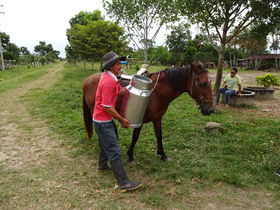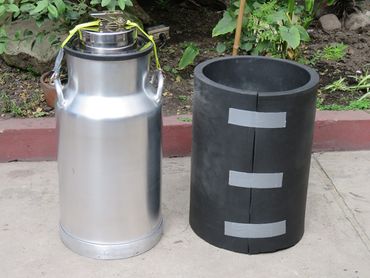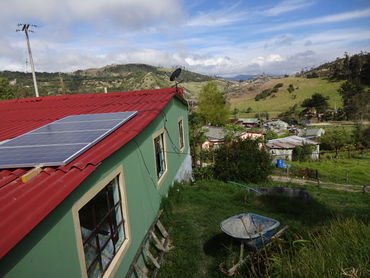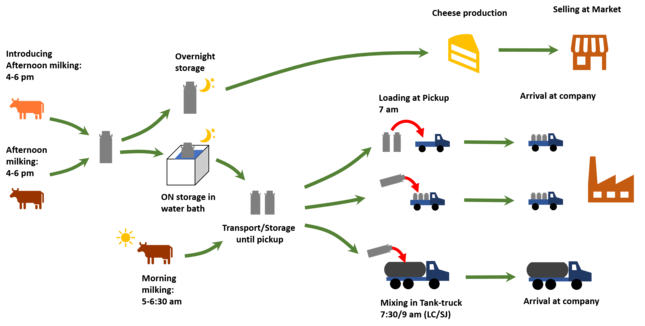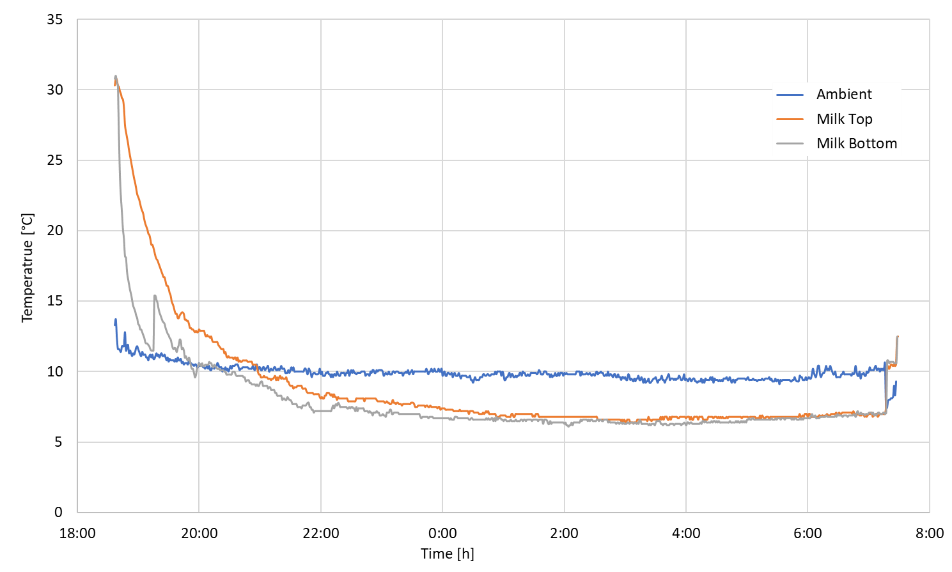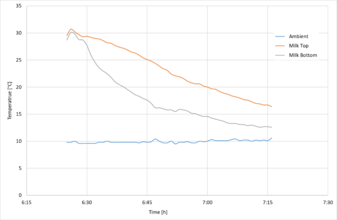Hohenheim Milk Cooling System - Implementation in Colombia
Back to: Solar Milk Cooling with Insulated Milk Cans
Back to: Do It Yourself - Solar Cooling Unit
Introduction
Milk losses due to a lack of cooling and poor hygiene result in high production losses and sanitary risks in Colombia. Hardest hit are small-scale dairy farmers located in non-electrified areas or post-conflict regions.
On the other hand, due to the cost reduction of solar energy, several technical solutions are nowadays available. However, beyond the technology, there is still very little insight into the most promising business models to support small-scale dairy farms in the Colombian context.
For this project, suitable business models will be identified and piloted in a joint initiative between promising local experts, the University of Hohenheim, the GIZ in Colombia, and communities of Meta and other regions in Colombia. The private sector shall be involved at that stage as far as possible to achieve the overall objective of building a bridge towards the deployment of solar milk cooling technologies in (rural) Colombia.
Objectives
October 2017 to May 2018:
Assessment of business opportunities through the introduction of solar milk cooling in rural Colombia
The overall goal of the presented project is to identify, assess and promote business models that would contribute towards an up-scaling of the ice-based milk cooling concept in Colombia.
The project shall focus on the financial and economic assessment of business opportunities as main indicator for future interventions, as further development of the technology, its promotion and cooperation with companies for its local production and commercialization. The objectives include:
- The financial and economic estimation of income generation potential of local milk producers in the Colombian department of Meta, Cundinamarca and Boyacá.
- To identify and formulate suitable business models within existing value chain segments and relevant actors.
- Pilot testing of 3 mobile prototypes with the selected business models at several farms for the assessment of milk quality preservation, income generation and social acceptance.
- The elaboration of strategies to promote and introduce small-scale milk cooling systems at different levels of the dairy value chain (farm, collecting points, cooperative, dairy plants) to give recommendations on how and where to effectively introduce the technology.
- The analysis of the state of the art of local industry for a sustainable commercialization and maintenance of the studied milk cooling solution.
Results & Findings
Colombian dairy value chain
The Colombian dairy value chain varies highly between different localities because of different climates, infrastructures, personal convictions and economical possibilities.
Local produced Solar Milk Cooling System
Field Testing
More information
Mission report of the introduction and testing of solar milk cooling systems in Colombia:
Workshop on solar milk cooling in Colombia Mai 2018:
Evaluación de Oportunidades de Negocio a través de la Introducción de Refrigeración Solar de Leche en Áreas Rurales de Colombia.
Refrigeración de leche cruda con energía solar en Colombia
Enfriamiento de leche con energia solar Universidad de Hohenheim Alemania
Acknowledgements
Many thanks to the GIZ both in Germany also in Colombia, that enabled the work in the field. Thanks also to BPG Asesores, represented by its director José Miguel Acosta Barbosa, SYNERGY, represented by Diana Ramos Perez and Assumar, represented by Axel Friedrich Santacruz Lehnert. These three people continued field testing and developing systems for a better cooling to increase acceptance of the solar milk cooling in rural Colombia.

